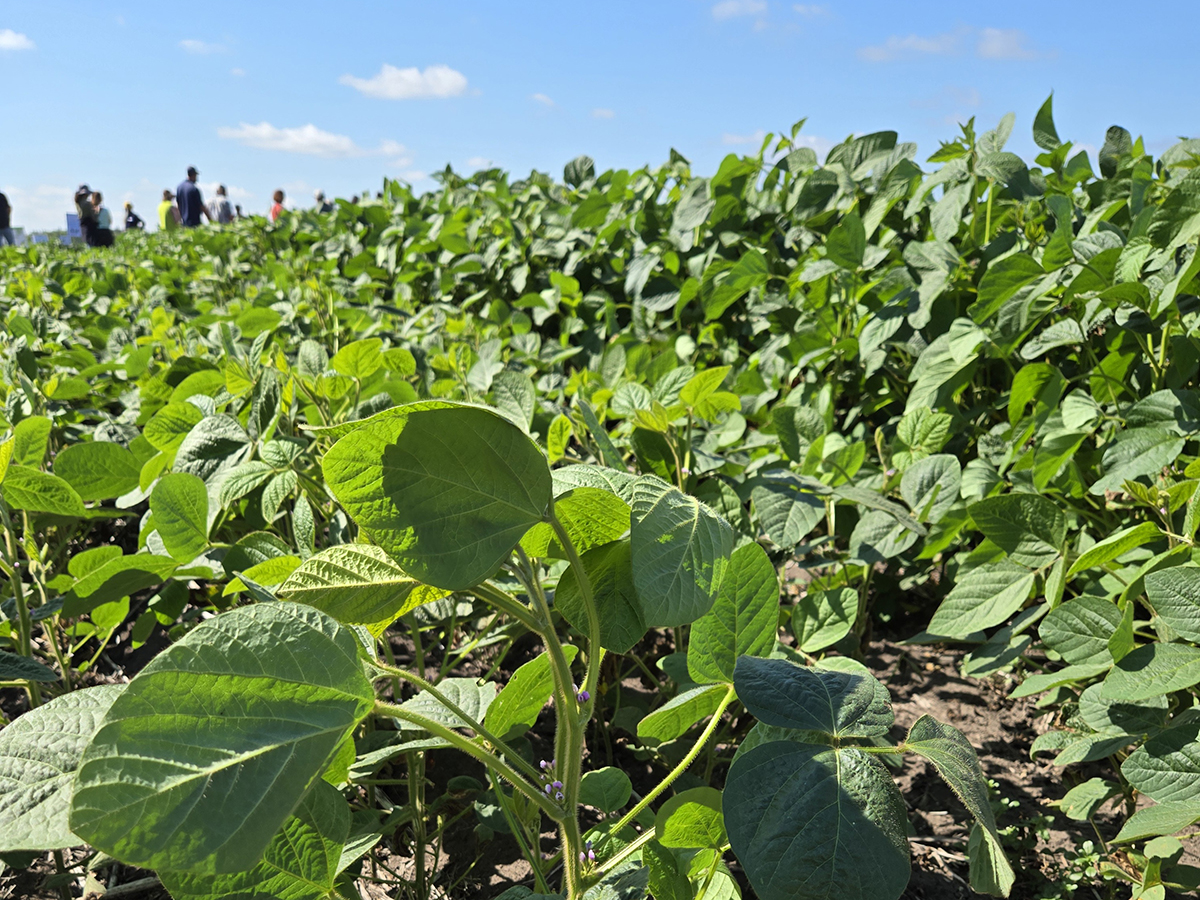BRUSSELS, Belgium – The way Simon Barber sees it, Europe’s strong environmental movement is the driving force behind the European Union push to expand its biofuel industry.
“I think the environmental concerns about global warming have given it a real push,” says the director of the plant biotechnology unit in Europabio, the European lobby group for the biotechnology industry.
He also is a skeptic.
“I must say my own opinion is that it is policy based on populism and popularity rather than a hard-headed analysis if this is really the best way to achieve a goal,” said the Canadian who has worked in Saskatoon’s Innovation Centre.
Read Also

Spider mites big soybean problem this season
Spider mite issues have been geographically limited but significant where they occur, said John Gavloski, an entomologist with Manitoba Agriculture.
His colleague Dirk Carrez, Europabio public policy director, sees it as more of a reflection of Europe’s fear of dependence on foreign sources for vital commodities, whether it is food or energy.
“I think the dispute between Russia and Ukraine over oil supplies earlier this year really gave emphasis to the European sense of vulnerability because there were real threats that oil supplies would be reduced here as well,” he said.
According to a European Commission bureaucrat who has been at the centre of evolving EU biofuel policy, both views are correct but are only part of the picture.
Luc Werring, principal adviser to the EC directorate-general for energy and transport, said the 2002 decision to promote a biofuel mandate was based on three objectives: support rural economic interests; improve environmental performance; and improve European energy security.
“At the time in a moment of honest reflection, I said it was 25 percent based on CO2 emissions (greenhouse gas), 25 percent on security and 50 percent on agricultural interests,” he said. “Don’t forget, at the time we were involved in agricultural reform that had people worried about farm incomes and growing surpluses. Now, I would say the mood has changed. I think security of supply has taken a bigger profile.”
It is estimated that by 2010, 55 percent of European fuel will be imported from such volatile markets as the Middle East and Russia. Without EU action, that could rise to 64 percent by 2020.
Interviews within the EC bureaucracy revealed some skeptics about the practical energy security implications of a mandate to use 5.75 percent biofuels by 2010, and about the real environmental impacts of the proposal.
Within the farm community, there is support but also skepticism about how much farmers will benefit. If rapeseed prices start to increase for biodiesel production, will processors begin to look for cheaper alternatives and consumers of vegetable oils begin to complain about higher food prices?
“That is a concern we have, a debate we are having,” conceded Marie-Christine Ribera of the Europe-wide farmer organization COPA, centred in Brussels.
But despite the skepticism, the EU has embraced the biofuel project with a 2010 content mandate, a vision of making biofuel one-quarter of all fuel use by 2030, a series of biofuel tax reductions in member states like Germany, the Netherlands, Italy and the United Kingdom, and an aggressive biofuel public-private research program that takes close to $90 million Cdn in annual EC funding.
Skeptics point out that the EU, for all its planning, fell short of its 2005 goal of a two percent share of the fuel market.
But promoters like Raffaello Garofalo, secretary-general of the European Biodiesel Board, talk enthusiastically about how far they have come.
Last year, Europe produced 3.2 million tonnes of biodiesel compared to close to zero in 2000. Production has increased more than 30 percent each year since 2002 and 65 percent last year.
Germany is by far the world’s largest biodiesel producer and European countries dominate the top 10 list. Because of consumer demand, diesel represents 80 percent of Europe’s biofuel production and use.
“The government did an important thing by setting the goals and the framework and providing tools,” said Garofalo. “The industry has responded. The results are amazing.”
Added Werring: “When we proceeded in 2002 (to set the mandate goal and tools), we were considered to be completely nuts but now, all politicians are making it an issue, their issue.”














